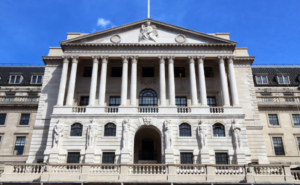Wherever you go on the high street or online, you will see ‘Buy Now Pay Later’ (BNPL) schemes advertising that you can buy that item you want or need now and pay back the money borrowed, plus interest, over several weeks or months. Some providers add a sweetener by giving the borrower an initial interest free or fee-free period.
BNPL schemes can be seen as offering flexibility for those who can take advantage of the interest free period, giving them more time to use the credit interest free before paying the debt off. Equally, being able to divide up the cost of purchase into equal parts and paying off the agreed amount over a fixed period (even with interest added) can make sense…provided payments can be kept up.
Problems really start when people can’t keep up payments because, unless they are able to get the situation resolved, interest is then added to the total, and they can find themselves in a spiral of debt. Many people are routinely resorting to deferred payment schemes, like BNPL, to buy household essentials.1
Any consumer who misses payments risks seeing their case turned over to debt collectors. A survey of 2,507 UK adults using BNPL, carried out by the Behavioural Insights Team and the Money & Pensions Service (MaPS), showed that one in five (19%) had used it for essentials.1
This included groceries (11%), toiletries and hygiene (8%), household bills (5%) and fuel (4%).1
There are an estimated 10.1 million BNPL customers in the UK and MaPS says that although it can be very useful, people need to consider it as carefully as any other credit product and use it in the right way.
The poll also revealed that over half of users (55%) currently have an outstanding payment, while 33% have at least two. Of those with payments outstanding, more than half (55%) owed more than £100, while one in seven (14%) owed over £500.1
Rocio Concha, the director of policy and advocacy at Which?, said: “BNPL schemes can offer speed and convenience at the checkout, but our research shows that many users do not realise they are taking on debt or consider the prospect of missing payments.”2
The consumer body said that, “given the immediate risk,” BNPL firms should make their terms and conditions more accessible now. It added that affordability assessments should be carried out for all transactions before regulation is introduced.2
The impact of the cost-of-living crisis will no doubt have pushed consumers into taking on more debt, and as other consumer credit lenders withdraw from the market, this will have affected the increasing volumes of BNPL schemes in recent times.3
At present, the Financial Conduct Authority does not have oversight of unregulated BNPL but the former Government introduced a consultation on introducing a draft legislation which could seek to bring more consumer protection in this area, however this is currently on hold due to the recent change in Government.4
However, recent Consumer Duty regulation from the Financial Conduct Authority does require BNPL firms to evidence to them that their services are delivering good consumer outcomes and not encouraging consumers to take on debt they can’t afford.5
At the end of the day, BNPL schemes offers consumers flexibility by allowing them to spread the cost of purchases over multiple interest-free payments, making it easier to manage expensive items, but it’s important to be aware and mindful of the risks – potential interest and late fees if payments are missed and the ease of accumulating debt if not managed responsibly.
Sources
- Money & Pensions Service (2024) One in five Buy Now Pay Later customers using it for essential items. Available at: https://maps.org.uk/en/media-centre/press-releases/2023/one-in-five-buy-now-pay-later-customers-using-it-for-essential-items# [Accessed 16 Jul 2024]
- The Guardian (2022) Buy now, pay later customers unaware of debt risks, warns Which?. Available at: https://www.theguardian.com/money/2022/jan/06/buy-now-pay-later-customers-unaware-of-debt-risks-warns-which [Accessed 16 Jul 2024]
- Grant Thornton (2024) What’s next for BNPL in 2024?. Available at: https://www.grantthornton.co.uk/insights/whats-next-for-bnpl-in-2024/ [Accessed 16 Jul 2024]
- Gov.uk (2024) Closed Consultation – Regulation of Buy-Now Pay-Later: consultation on draft legislation. Available at: https://www.gov.uk/government/consultations/regulation-of-buy-now-pay-later-consultation-on-draft-legislation [Accessed 16 Jul 2024]
- Financial Conduct Authority (2023) Consumer Duty sets higher standards for financial services customers. Available at: https://www.fca.org.uk/news/news-stories/consumer-duty-higher-standards-financial-services [Accessed 16 Jul 2024]
All the information in this article is correct as of the publish date 25th July 2024. The opinions expressed in this publication are those of the authors. The information provided in this article, including text, graphics and images does not, and is not intended to, substitute advice; instead, all information, content, and materials available in this article are for general informational purposes only. Information in this article may not constitute the most up-to-date legal or other information.
Please be aware that by clicking on to any of the above links you are leaving our website. Please note that neither we nor HL Partnership Limited are responsible for the accuracy of the information contained within the linked site(s) accessible from this page.





